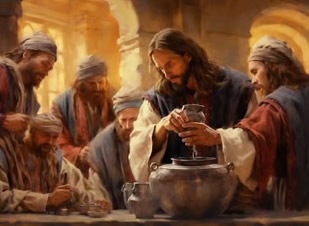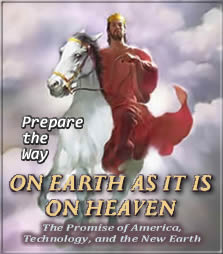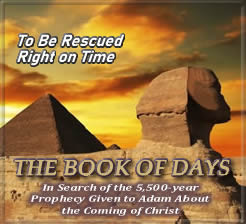Misconception #39 (Cont’d)
When Jesus Commended a Person for Offering Water to the Least of His Brothers, He Meant it for Anyone in Need of a Helping Hand
Jesus sent His twelve disciples out amongst the people, where they were to proclaim that the Kingdom of Heaven was manifesting itself in their very midst. Wherever they went, they were to invoke His Name—to heal the sick, to cast out demons, and to raise the dead. All this they were to do, but on one condition: They weren’t allowed to take any money with them on their journey, explaining that as “workers in the field,” as it were, they were worthy of their hire.
They were to travel from city to city, and wherever they went, they were to be provided for; and whoever declined to do so would bear the responsibility for their actions—or to be more precise in this case, their failure to act. As sheep amongst wolves, Jesus sent them into the harvest field, admonishing them to be harmless as doves but wise as serpents. Warning them about the perils they’d face for His sake, He yet assured them that they’d be divinely guided by the Spirit of God in all that they’d face. Hatred, persecution, and death would be their lot, but whoever endured would be saved in the end. They were told in no uncertain terms that their enemies would be among their own household, and that if any of them loved their families more than Him they weren’t worthy of Him. They were told simply to take up their crosses and follow Him. Whoever found his life would lose it, and whoever lost his life for Christ’s sake would find it.1
Story Continues Below
Says Richard Price—the founder and CEO of Academia.edu—on his podcast In Depth With Academia:
Fish Tales (From the Belly of the Whale): Fifty of the Greatest Misconceptions Ever Blamed on The Bible is:
To hear Price’s book review of Fish Tales (From the Belly of the Whale), CLICK HERE.
To hear Kent and Zen Garcia talk about correcting biblical misconceptions, from October 28, 2021, CLICK BELOW.
Story Continues From Above
What’s more, whoever received them would be receiving Christ, and whoever received Him would, in fact, be receiving the One Who’d sent Him, because He said:
Anyone receiving a prophet in the name of a prophet receives a prophet’s reward, and anyone receiving a righteous man receives a righteous man’s reward. And whoever gives one of these special ones a cup of cold water, simply in the name of a disciple, I tell you here and now that they’ll certainly receive a reward for it.2
We can see, then, how the context of this chapter provides a completely new view of the verses in question. Far from conveying the idea that Jesus intends to bless just anyone who passes out indiscriminate cups of water, we see what centuries of disinformation have obscured. Having restored what’s been lost for so long, we see a simple yet powerful truth so important to the heart of God.
We can see, then, how the context of this chapter provides a completely new view of the verses in question. Far from conveying the idea that Jesus intends to bless just anyone who passes out indiscriminate cups of water, we see what centuries of disinformation have obscured. Having restored what’s been lost for so long, we see a simple yet powerful truth so important to the heart of God.
The ones Jesus intends to reward are those who provide for those He’s commissioned to bring the Good News of the Gospel to the whole world. Those kind of people, and only those kind, should ever expect to receive the blessing that Jesus speaks of here; and we should therefore do away with the notion that the Lord is in any other business than to sustain the workers of His harvest. To believe otherwise would be a disservice to Christ, Who knew exactly what He was doing when He ordained and sent out His disciples, as sheep amongst wolves, in a world fraught with danger on every side.
So, in reviewing the entire tenth chapter of Matthew, instead of focusing on just one verse, we can’t help but better understand what Jesus was really thinking when He offered His famous commendation. To those bringing the water of God’s word, water should be given; to those bringing the sustenance of God’s promise, sustenance should be given. And in so doing, a marvelous balance of life would ensue: Both the heart of humanity and the heart of God would be satisfied.
But to those who refuse to participate in this divine dance, their portion only brings sorrow. Not only to them, though, but to the Lord also, just as when Jesus gazed out over His beloved but rebellious city of Jerusalem, of whom it was said: “He came to His own, but His own received Him not.”3 As He looked, He could not help but weep bitterly, because He knew all too well of those dark days ahead when His people would finally cry out in genuine gratitude: “Blessed are those who come in the Name of the Lord.”4








